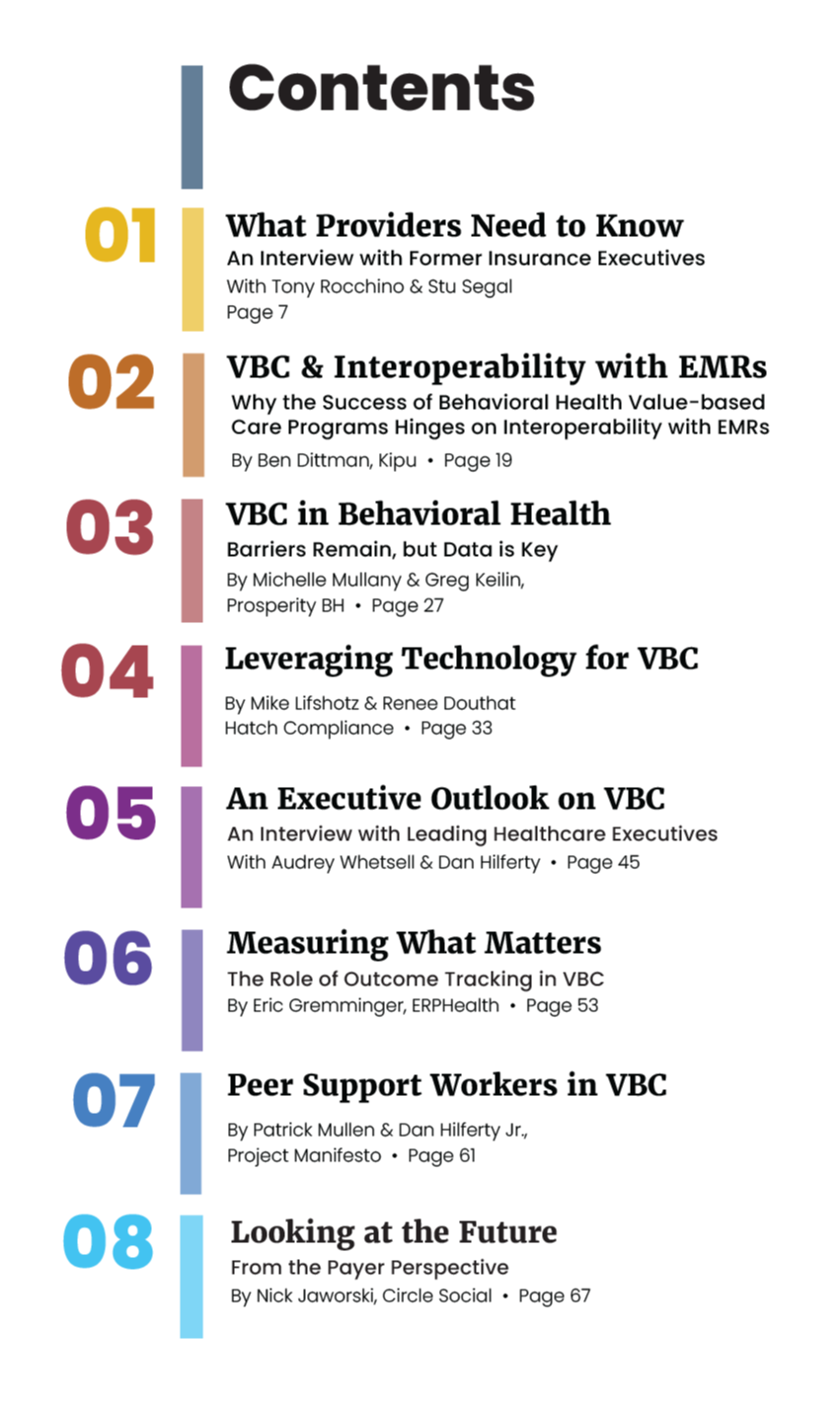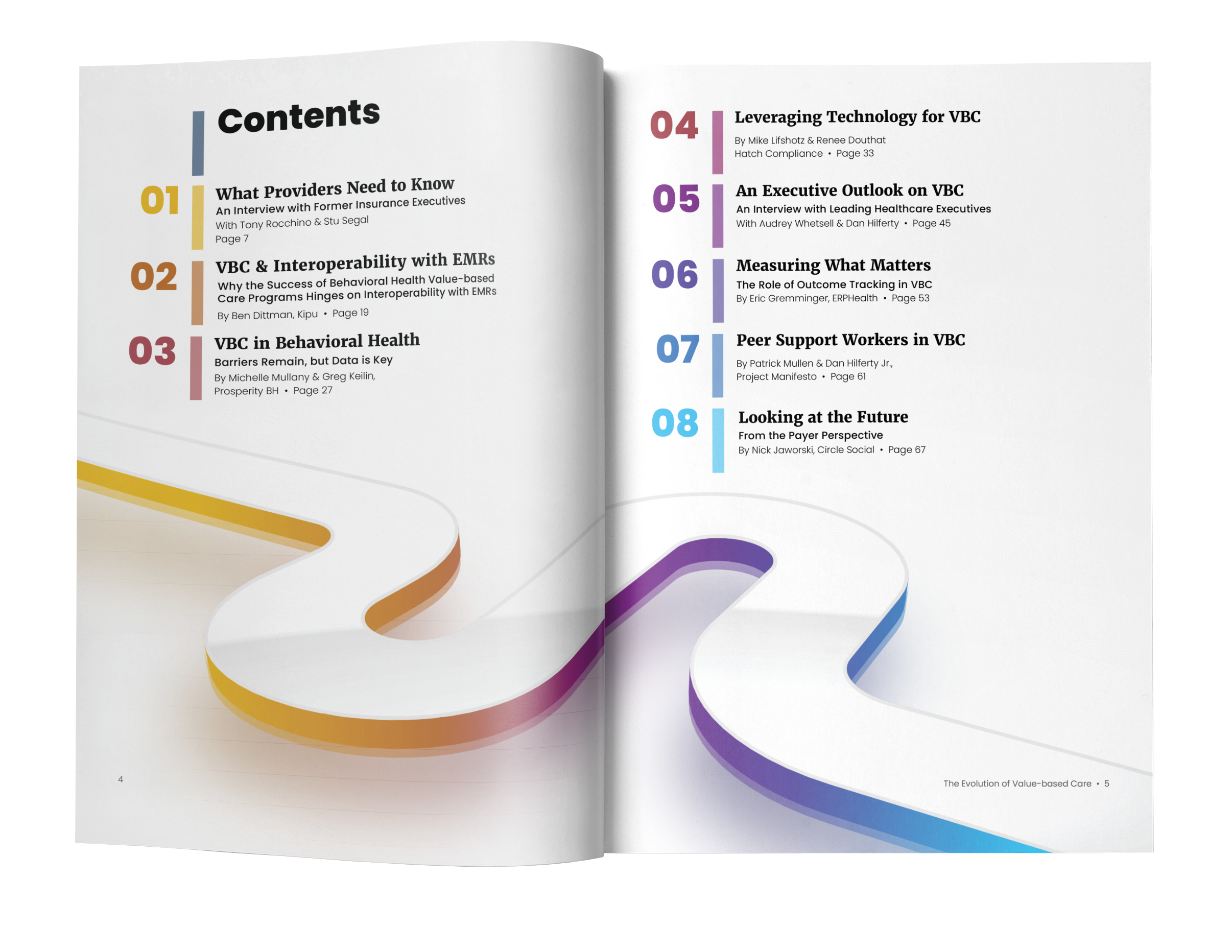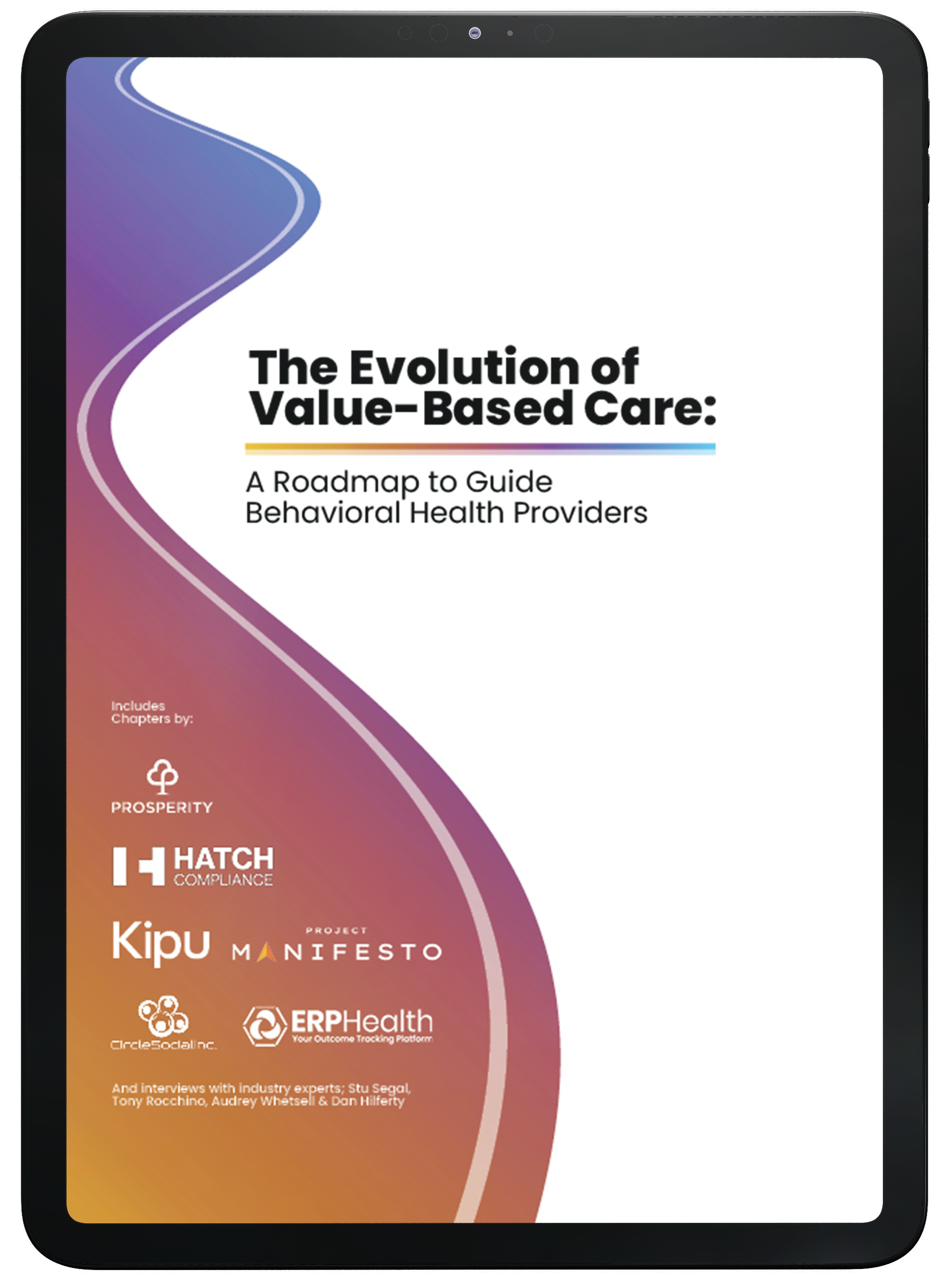
Scroll to Learn More
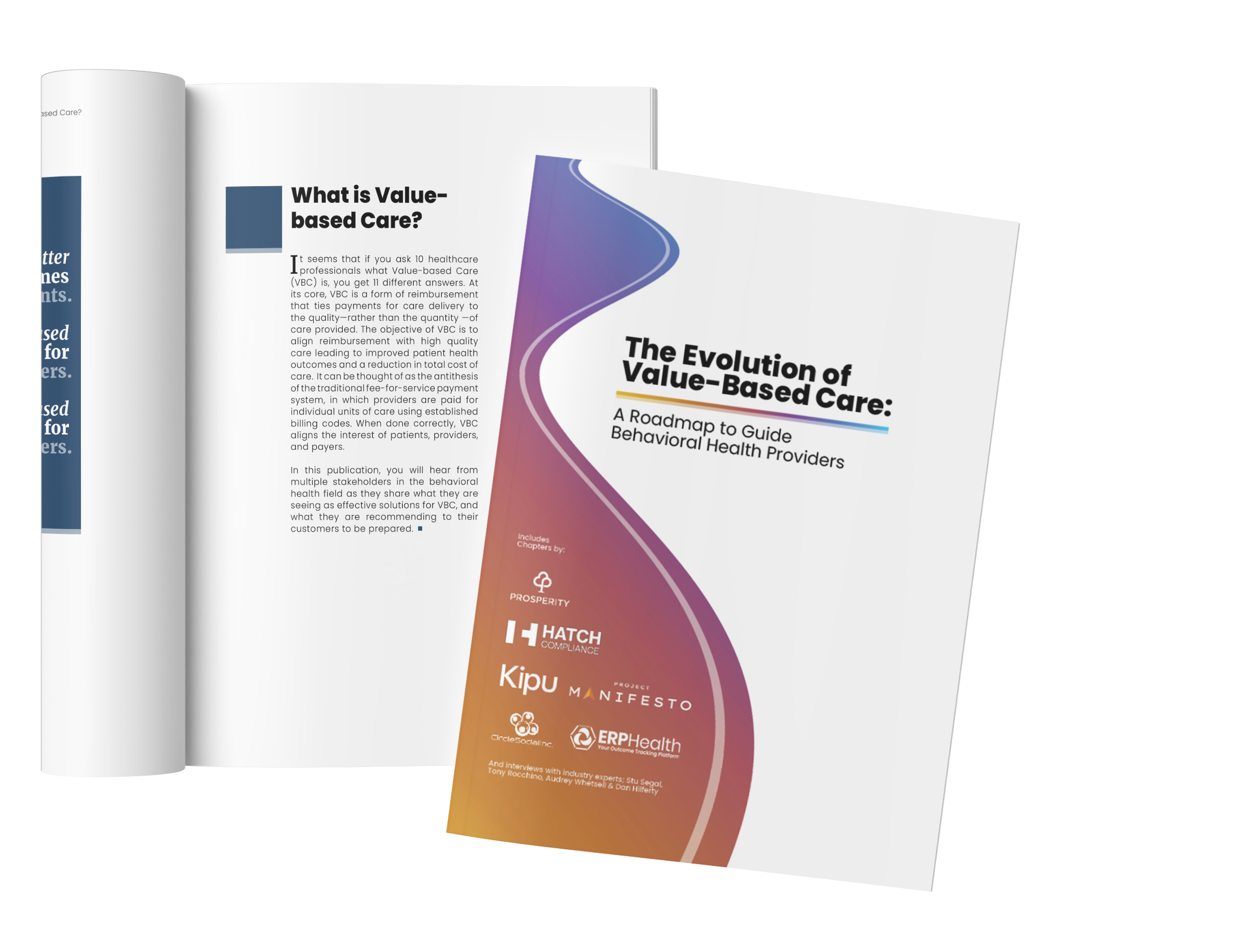
-1.png)
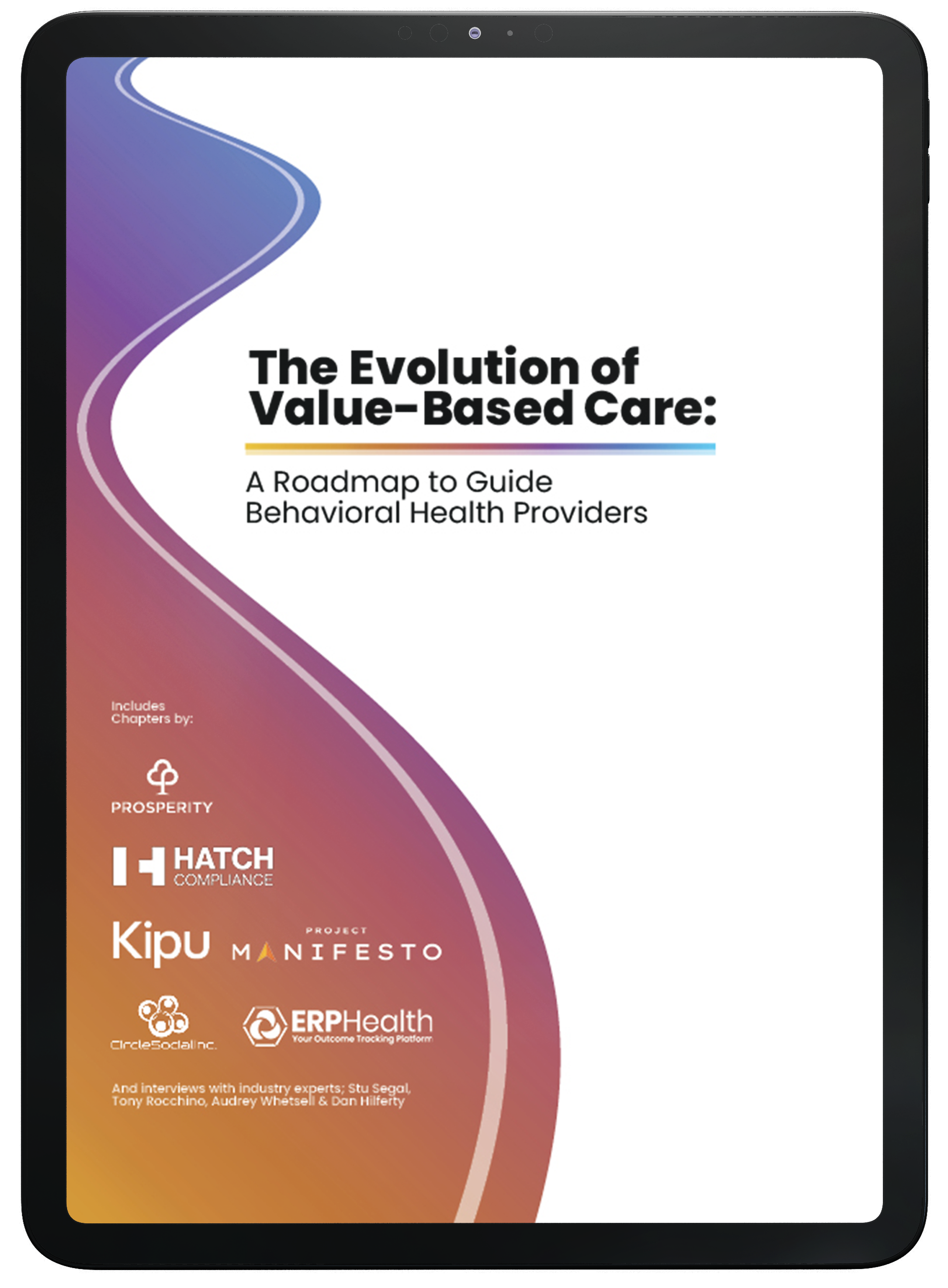
.png)
-1-1.png)
Executive Summary
With an estimated one in four adults having a diagnosable mental health condition and over 60 million people using substances, the need for person-centered, culturally appropriate, high quality behavioral health treatment has become a top priority in the United States. These disturbing statistics have led to a nationwide push to enforce parity laws, prioritize health equity, and integrate physical and behavioral health. In addition to expanding access and proving the care being offered is effective, stakeholders in the behavioral health field are calling for a corresponding change to the reimbursement model, one where incentives are based on value instead of volume.
The result has been an accelerated push towards Value-based Care (VBC) contracts. In 2021, CMMI published a report stating that they aim to have all Medicare beneficiaries and the vast majority of Medicaid beneficiaries on VBC arrangements by 2030. Commercial insurers are also showing more interest and many have already established VBC agreements with expansion plans to include more of their network. While these changes are good for consumers, behavioral health providers are feeling the pressure because their operations were built around a fee-for-service payment methodology.
Many are turning to technology to streamline their workflow and better position themselves for the changing reimbursement landscape. In this paper, we hear from a variety of experts in the behavioral health space regarding which steps providers should be taking when preparing for VBC.
